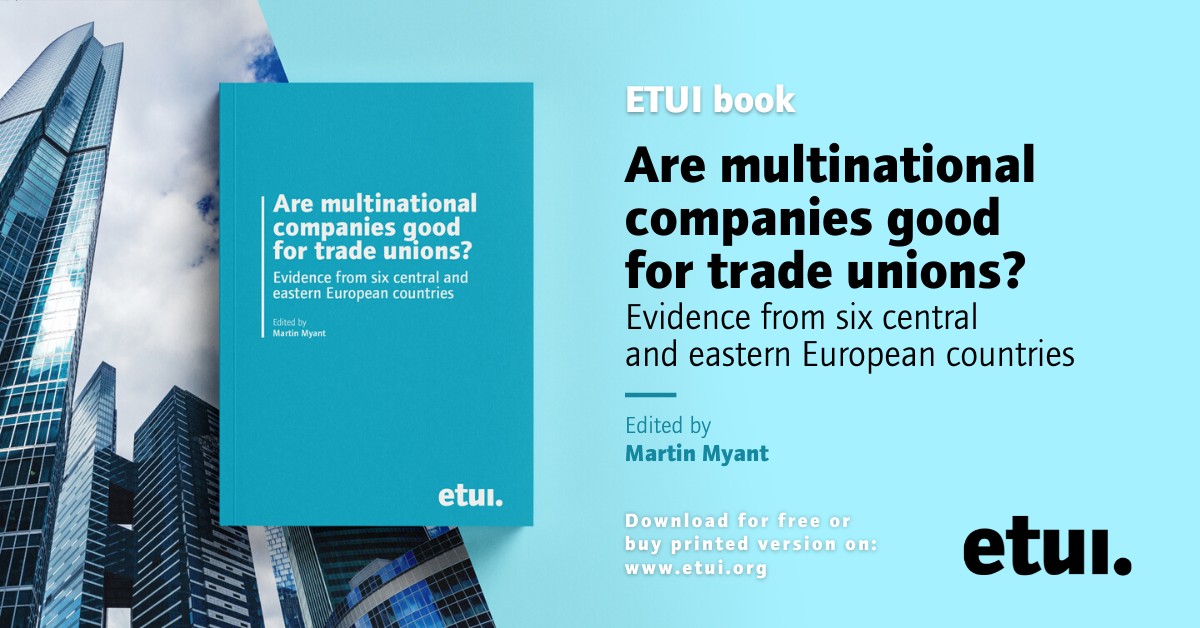Publications
CELSI researchers Monika Martišková, Pavol Bors, Tibor T Meszmann and Adam Šumichrast contributed to the ETUI book titled "Are multinational companies good for trade unions?"
CELSI researchers Monika Martišková, Pavol Bors, Tibor T Meszmann and Adam Šumichrast contributed to the ETUI book titled "Are multinational companies good for trade unions?"
Published on Feb. 1, 2023 in Books

CELSI researchers Monika Martišková, Pavol Bors, Tibor T Meszmann and Adam Šumichrast contributed to the book with three case studies that address the situation in the Czechia, Hungary and Slovakia.
Multinational companies dominate much of the economies of the new EU member states of central and eastern Europe. They usually claim to respect trade unions at home and many have signed global agreements with international union organisations. It could be hoped that they would play a positive role, bringing better employment relations practices into countries with weaker traditions of independent trade unions and collective bargaining. This book covers the role in six countries of MNCs in the retail and automotive sectors (Czechia, Hungary, Poland, Romania, Slovakia and Slovenia).
Each chapter is written by a country expert using published sources and interviews, mostly with trade union representatives, in two or more companies from each of those sectors. The studies show a variety of experiences, but only in a very few cases do western European MNCs actively introduce good practice from their home bases. More often they need to be persuaded to respect trade unions and some remain adamantly opposed or, even if appearing friendly at the start, become more hostile once they sense that unions are weaker than in their home countries. Legal frameworks and inherited trade union strength do make a difference, with unions in Slovenia clearly the best placed.
The aim of this book is to analyse the behaviour of MNCs when they operate in a group of central and east European countries that joined the EU in 2004 (Czechia, Hungary, Poland, Slovakia and Slovenia) and in 2007 (Romania). The chapters are written by experts from those countries and include some background information on the individual country followed by case studies usually of two incoming MNCs in the automotive sector and two in the retail sector. The analyses are based both on published sources and on in-depth interviews with trade union representatives, both at company and sector levels, and with a smaller number of independent experts and representatives of management. The great majority of MNCs covered are western European albeit with a small representation for east Asian companies and there is one case from another new Member State. This range provides a contrast in home practices in terms of employee relations.